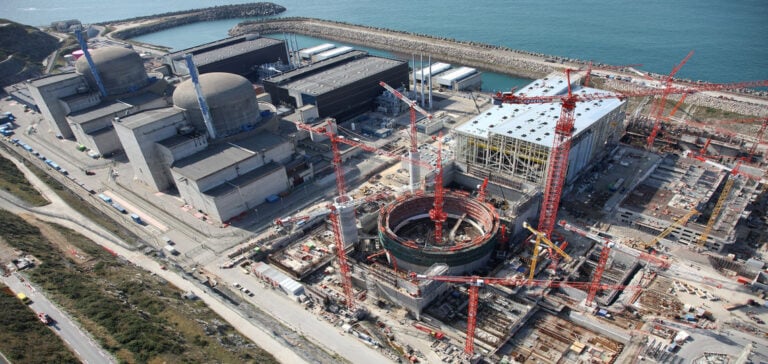The Flamanville EPR will be commissioned by French energy giant EDF, launching a major test campaign. This step, known as the “final dress rehearsal”, is crucial after the many delays and uncertainties surrounding this nuclear project. This article explores these trials, the continuing challenges and the key role of the French nuclear safety authority (ASN) in authorizing commissioning.
Crucial tests for the Flamanville EPR
The test campaign underway at Flamanville is essential to prepare the EPR for commissioning. Over 4,000 safety and availability criteria will be assessed over the next 10 weeks. The aim of these tests is to guarantee the safety and efficiency of the reactor before its start-up, scheduled for the first quarter of 2024. The aim is to ensure that all safety standards are met.
This campaign mobilizes 200 employees to carry out these tests, which shows the scale of the task. This is vital to the successful commissioning of the EPR, which has been postponed several times.
Project challenges and delays
The Flamanville EPR has faced challenges and delays since construction began in 2007. Project costs have soared to 13.2 billion euros, four times the initial budget of 3.3 billion. The project is 12 years behind schedule.
These problems have raised concerns about the economic viability of the project and its role innuclear power generation in France. The commissioning of the EPR is essential for the future of nuclear energy in the country.
Review by the French Nuclear Safety Authority (ASN)
The ASN plays a crucial role in authorizing the commissioning of the Flamanville EPR. It recently closed a public consultation, which took comments until September 15. It is currently analyzing these comments and will publish a summary on its website.
The opinions of the Environmental Authority and local authorities will also be taken into account. A further public consultation will be held before the reactor is commissioned.
The tests currently underway will enable ASN to decide whether or not to authorize commissioning. This authorization is required to load fuel into the reactor. The outcome of this stage will determine the commissioning schedule for the Flamanville EPR, which is crucial for nuclear power in France.
In short, EDF’s test campaign for the Flamanville EPR is a key milestone in the completion of this complex nuclear project. Past delays underline the importance of this campaign for the future of nuclear energy in France. The ASN plays a central role in guaranteeing safety prior to reactor commissioning, which is closely monitored by the nuclear power industry and the public.






















